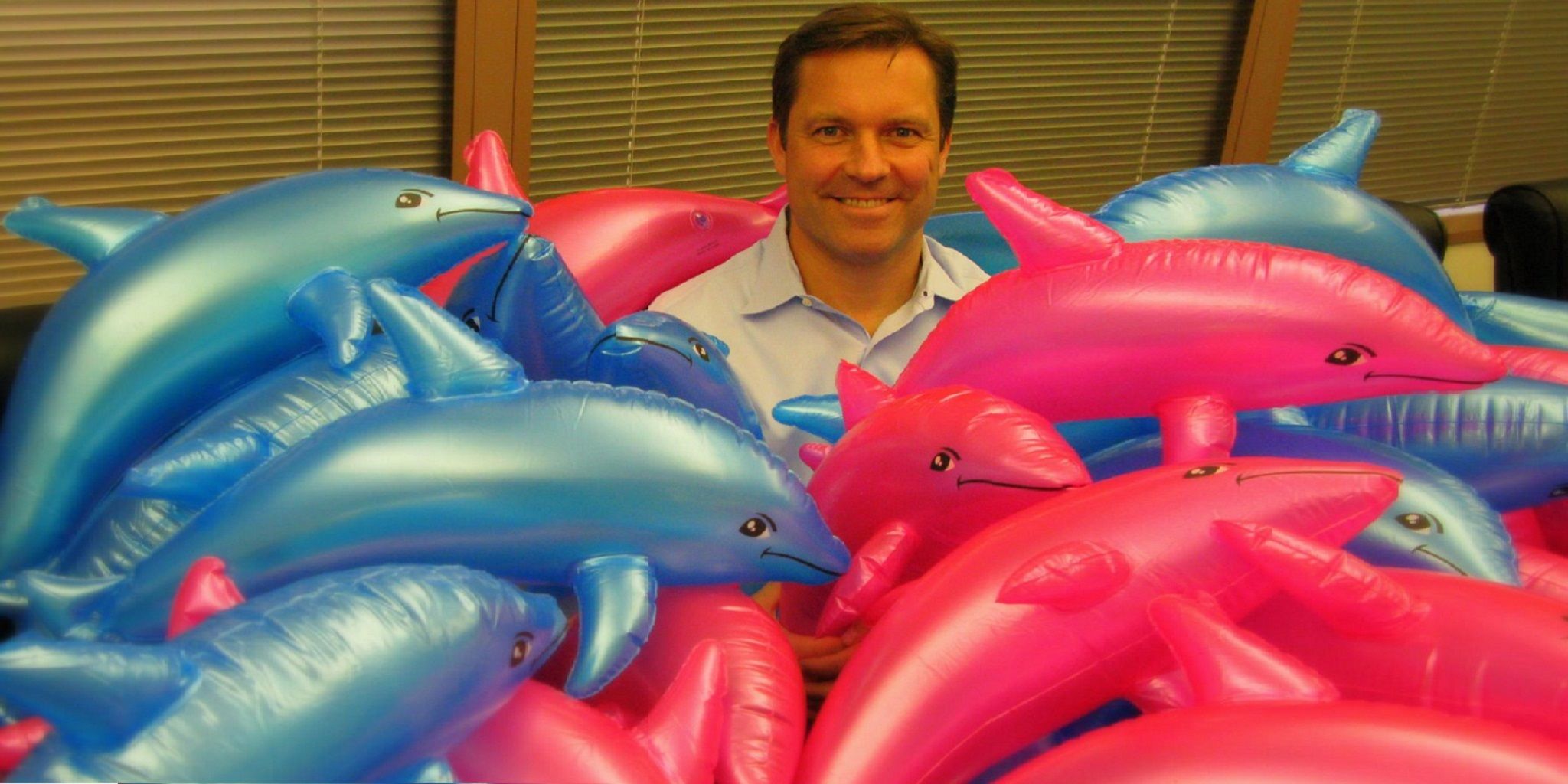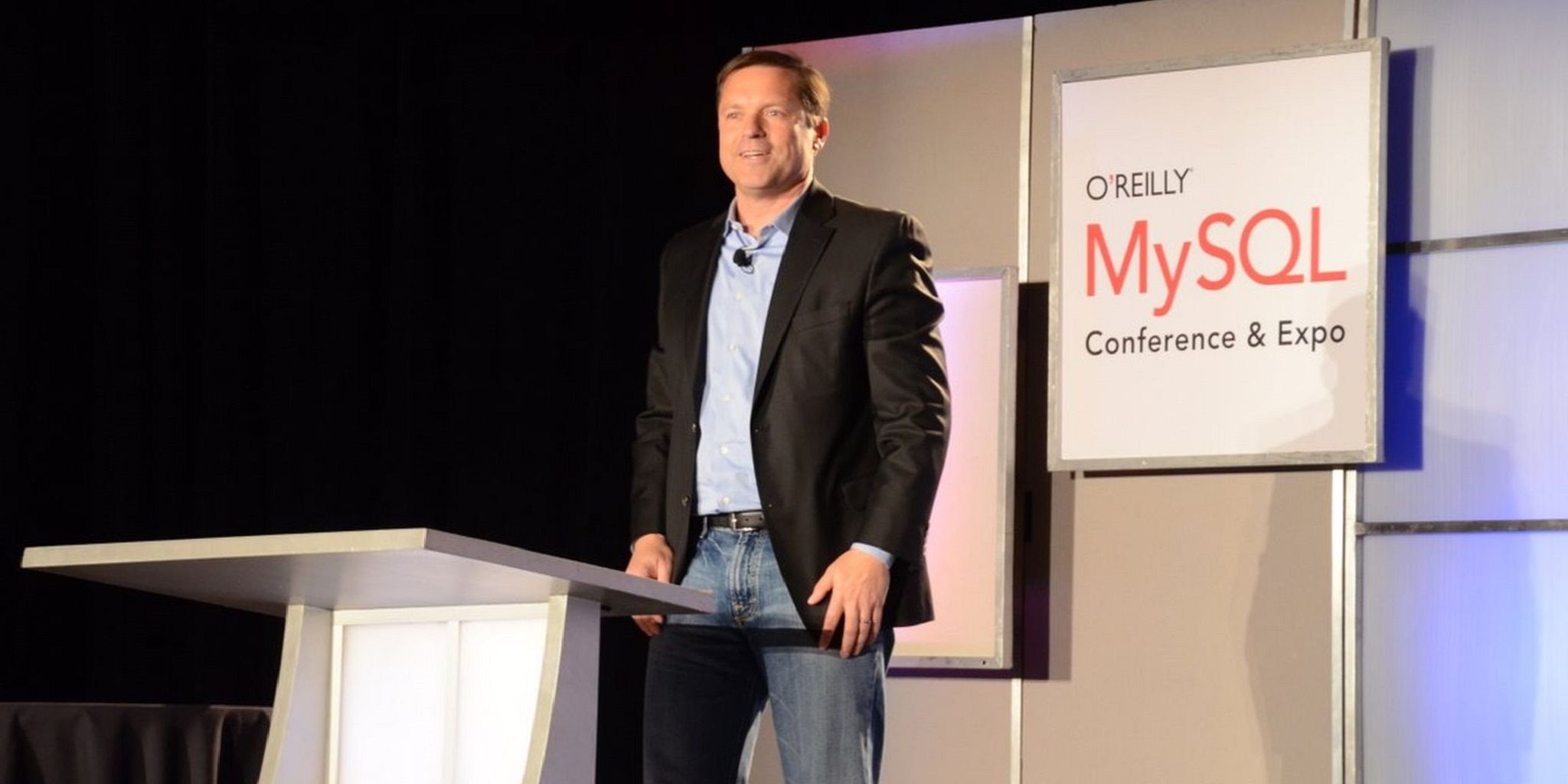Interview with Mårten Mickos
Michael: Mårten, you were the CEO of the MySQL AB and now you’re the CEO of Eucalyptus. As a Finn, how does your life in Silicon Valley treat you?
Mårten: Yes, I must admit I love Silicon Valley and, more broadly, the San Francisco bay area. It’s like being on a college campus for grown-ups. Nearly everyone came from somewhere else. Everyone came here with high thoughts about oneself, only to realize that everyone else is smarter and faster. Everyone is learning. Everyone is dreaming of a great future. People work together, get stuff done, and celebrate both the small and the large victories. It’s an inspiring place.
Michael: I’m a great fan of yours, mostly because you’ve been running the biggest teleworking company in the world — meaning most of your 500 MySQL employees worked from home or remote offices, right? Can you tell us why you chose to work like this? Did you have any offices? How was the work in your company organized?
Mårten: The distributed nature of the MySQL organization was there from the start. The three founders always worked from home (in two separate countries). We continued the tradition.
In 2008 we had about 500 employees, 70% of whom worked from home in 110 major locations in 32 countries and across 18 time zones.
We hired some of the most brilliant people. They were also very self-driven because they were working from their homes.
I call it the “fishing village.” In the evening, we may all get together and be very social with each other, but every morning before dawn, each one goes out in his or her little fishing boat, with nothing more than a VHF radio for communication. Whatever the weather, whatever you feel like, you go out. And you don’t come back until you have caught fish. But once back, you are very social again.
That’s how a distributed team works, too.
Michael: That’s right. And weren’t people telling you that you were crazy not to have a big physical office in a skyscraper somewhere in Helsinki? I’m running a 15-person team and they already tell me I’m crazy to let them work from home…
Mårten: Our first investors were shocked when they visited our “headquarters” in Uppsala, Sweden. There was practically no furniture other than in the conference room, and it was obvious that no one was using the office.
But we didn’t care much what others thought. We knew we had a functioning model, and we loved it.
Michael: That’s what counts! And how often did you visit the office? Where did you prefer to work — at home or in the office?
Mårten: I will be wherever I am most needed. I love working on my own. That gives me time to think, and it gives me the opportunity to have online connectivity with more people. When you are in an office, you zero in on just one or a few people. When you work from home, you can be online with a big group.
As CEO, my job includes going to events and visiting customers and partners. For that reason, it never feels lonely. For those who truly worked a lot on their own, we made sure we had get-togethers and team meetings that they travelled to.
Michael: If you had to name three productivity-boosting tips that helped your remote team stay productive and motivated, what would they be?
Mårten: Firstly, as the leader, you must go all in. You must be entirely online. You can’t just put your professional self online for your colleagues. You must share your personality with them, too. You must show your vulnerabilities.
Second thing is that in this modern online world, command-and-control doesn’t work. The only real tools you have as a leader are vision and culture. So as the leader, you must spend a lot of time discussing and communicating the vision. And you must spend a lot of time instilling the right culture. You must remember to thank people even for small things. You must reach out to people and help them see how their work fits into what the company is doing. It’s a lot of signalling that you must be doing.
Last but not least, you must automate a lot, and measure a lot. With great tools and with great reporting, everyone can be productive and everyone can know where we are going.
Michael: I’m planning to scale my team up from 15 to around 30 next year and I still want everyone to work remotely. People tell me I’m crazy. What would you advise me to do to make sure the process goes smoothly, and that the team at double the size is still motivated and happy to work, despite being so far away from each other?
Mårten: You must develop your methods of communication. With 15 people, you can have everyone on the same conference call, or everyone cc'ing everyone on emails. With 30 people, that must stop. So people will complain that information is not flowing any longer. You must come up with new ways to make information flow — ways that are suited for a team of 30 or more.
Michael: We mentioned the multicultural environment in MySQL. Now with Eucalyptus Systems, six technical founders are all from different countries and cultural backgrounds. How does such multicultural cooperation influence your work?
Mårten: I believe that diverse teams, in general, perform better than homogeneous ones. You need a mix of age, sex, culture, philosophy, ethnicity, place of living, etc.
The price you pay is that you must pay attention to communication. Some cultures are very direct — others are circumspect. Some cultures stay in the background, some are self-promotional. Some cultures have an optimistic way of communicating — others, a pessimistic one. But all of those things are just superficial. Deep down, we are all human beings. If we believe that each human being deserves respect, we can understand any culture. When we do that, we get amazing teams that outperform all other teams.
Michael: In your opinion, a belief in oneself is crucial to become successful in business. How do you foster this self-confidence and belief among your team, especially the co-founders of Eucalyptus?
Mårten: Great question. I don’t know! Well, perhaps I have some ideas. First, I try to celebrate the small victories. I try to thank people for really small things. I try to show them that I trust them. I try to understand what they want out of life and their professional career, and I try to support those ambitions. I try to make it automatically obvious to everyone that anyone who works in this team is absolutely fabulous.
But it’s very difficult to instill confidence in others, and I am not sure I always do a good job. My Myers-Briggs type indicator is ENTJ (Extraversion, Intuition, Thinking, Judging), which means that I may be an able and inspiring manager, but I can be a somewhat distant leader.

Michael: Apart from believing in yourself, you named other things that make a good entrepreneur; for example, being able to convince everyone that something is good even if it doesn’t make sense at first. What was your last idea which fit this pattern?
Mårten: At Eucalyptus, we have been talking about “API compatibility” for six years by now. For a long time, people were confused by our talking. Some smiled at it, not taking it seriously. There is still some debate about it. But more and more people are now agreeing that in this new world of cloud-based software, APIs play a bigger role than before.
Michael: Another thing you said was having someone who believes in you. Why does one need this kind of “external” support system?
Mårten: Because we all have self-doubt. Every human being is looking for validation. We may not consciously know it, but we are all constantly asking ourselves the question “am I good enough?” and “am I needed?”
For that reason, we need validation from the outside. This is especially true when we really have made a mistake. Rational as we are, we think that the mistake is evidence that we are not good enough. We know that the world is a meritocracy, so if we are not making great progress, it means that we are not good enough, doesn’t it? Those thoughts are difficult to get rid of on your own. You need a friend — a believer — who tells you that you actually are quite fantastic.
Michael: Let’s talk about your personal productivity. Do you have something like “a typical day”? If so, what does it look like?
Mårten: Typical? Not really. I love to work on my own. I love to read and write. I love to think. So my ideal day is one filled with a lot of thinking, reading, and writing. I guess that’s why I am such a fan of email.
I also like to interact with people, so there is another ideal day in which I am at some event or going to customer meetings, exchanging thoughts about how the world should function if it were perfect. I love presenting to audiences. In those moments, I get to test my thinking against a live audience. It could also be a negotiation where I get to test if I can find a win-win situation.
And then I love to be lazy, so a third type of ideal day is one when I do practically nothing.
Michael: Are there any specific daily routines you developed to be more productive and to manage your time efficiently? Are you following any particular method like GTD or something similar?
Mårten: I’m methodical. I believe in handling incoming requests (such as email) immediately when you look at them. So either take the time to read and respond, or don’t look at them yet. But don’t keep browsing through the same inbox over and over again. That’s a waste of time.
I am also a fast typer, and I can produce text quickly.
And then I am stubborn. I may decide not to stop my workday until some particular work is done. But, now thinking of it, I am also kind to myself. I have decided that given how hard I work, I am always entitled to a nap or break if I feel like it. So many times, if I have the opportunity, I will take a nap in the middle of the workday. It’s wonderful.
Michael: I’m crazy about optimizing and re-arranging my home office every year. What does your home office look like? Did you have any special ideas and goals while arranging it?
Mårten: I try to be 100% digital. I keep arranging my files and emails, but I don’t really have anything physical to arrange.
The latest physical change is a desk that goes up and down. Now I can use the same desk for standing and sitting. Great new experience.
Michael: I made myself a desk like that as well. It’s a great thing indeed! At Eucalyptus, do you work less or more from home than when you were at MySQL?
Mårten: About the same.
Michael: Any last thoughts you’d like to leave our Productive! Magazine readers with?
Mårten: Working from home, and more broadly, working with the distributed model, is fantastic for some and really bad for others. You need to know what type you are. If you are a "fisherman” (as in the analogy above), you are good to go. If you need a physical office with the presence of colleagues, then just admit it to yourself. We all come with our unique personality and suitability, and working in a distributed team is not something everyone can do productively. My guess would be that it’s 10-20% of the world population that really thrives in it.

